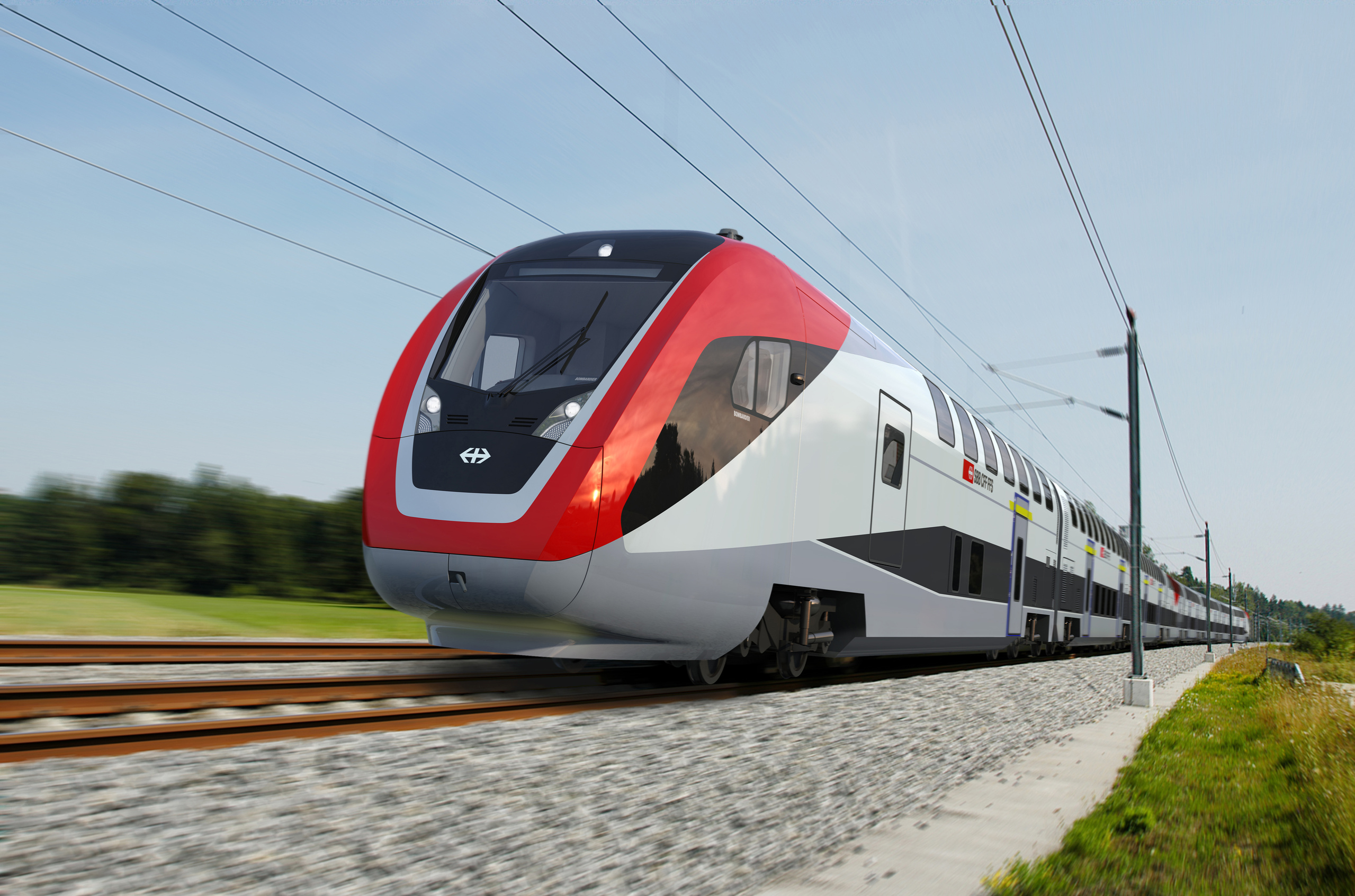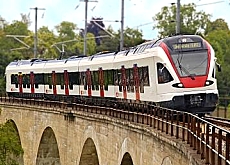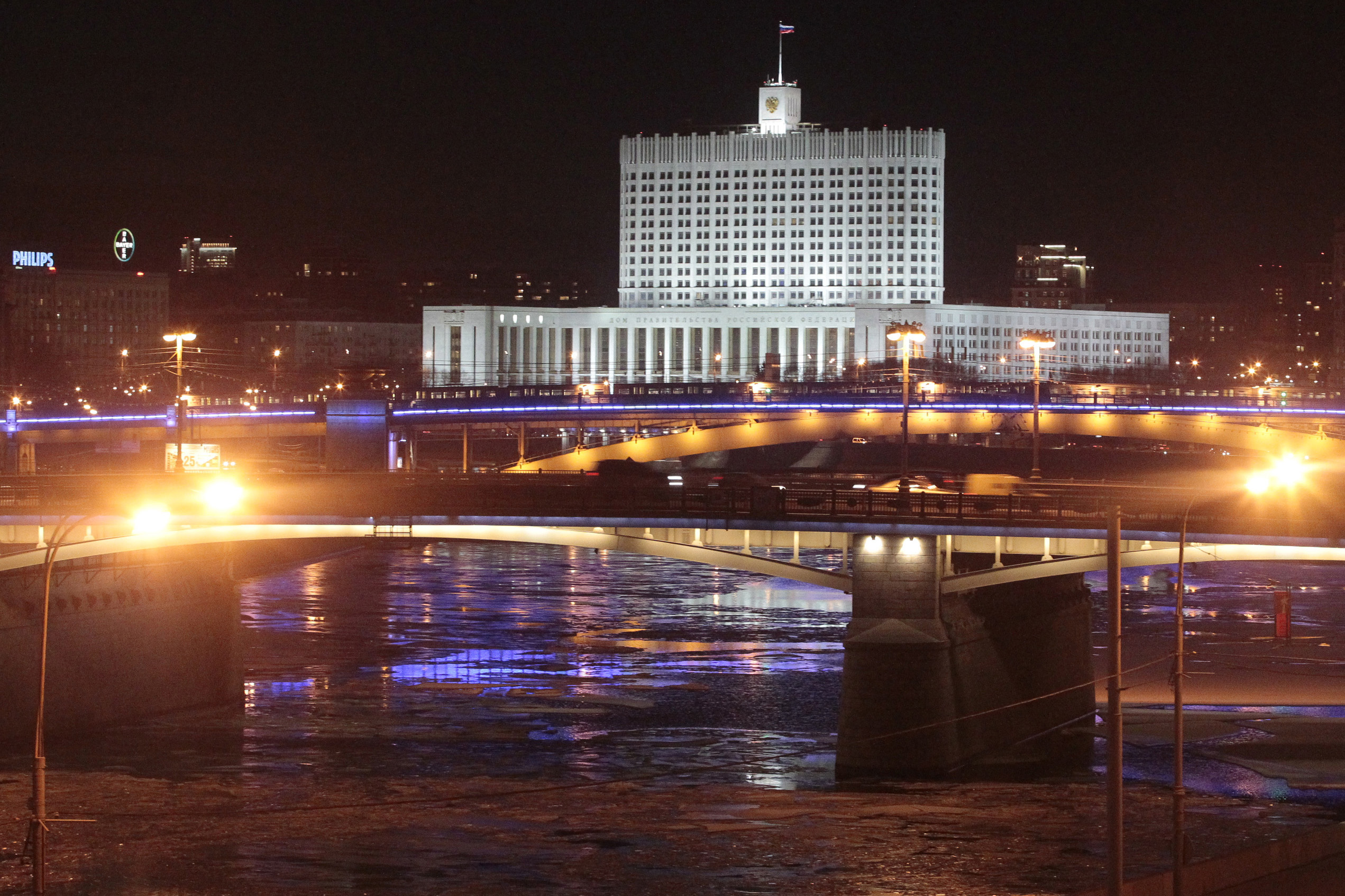Stadler rail on right tracks in Russia

A SFr240 million ($290 million) deal signed by Switzerland’s Stadler Rail to provide rolling stock to Russia highlights the importance of freight shipped by rail in the country.
Stadler Rail has been contracted to provide 100 diesel-powered drive components in the next three years to trains owned by Russian manufacturer Transmasholding.
The details were released at a meeting of Swiss and Russian rail companies gathered in Moscow on Tuesday.
The state-owned Russian railways company states that 43 per cent of all freight in the country, even accounting for oil and gas that is shipped through pipes, is transported on trains.
“Russia produces vast quantities of raw materials, much of them in the east of the country,” Urs-Peter Wepfer told swissinfo.ch. “The railway network ships the vast majority of these materials to refineries and production plants all over Russia.”
Wepfer is head of Swiss manufacturing specialist company United Machinery that has been present in Russia for 12 years.
The Stadler deal coincided with the visit of a Swiss trade mission to Russia, headed by Economics Minister Johann Schneider-Ammann, that featured a railways forum to explore future collaboration between the two countries.
Russia is in the process of upgrading its infrastructure, that includes 85,000 kilometres of track and 20,000 locomotives, to improve shipment of raw materials across the country and provide more impetus to the economy.
Inroads
The Swiss rail specialists have already made significant inroads into eastern Europe and Baltic states in the last few years, adapting its carriages and components to suit the track gauge and climatic conditions prevalent throughout the former Soviet Union.
“We made a good start by winning an order for trains from Helsinki,” Stadler rail boss Peter Spuhler told swissinfo.ch.
“To meet the requirements of this order we had to adapt our concept to broad gauge tracks and to arctic temperatures. We were then able to roll out these same products to Belarus and Estonia, and now we have landed in Russia.”
Daniel Steiner, president of the Swissrail umbrella group, told representatives of the industry from both countries in Moscow that Switzerland is well positioned to offer its experience as Russia bids to upgrade its infrastructure.
Steiner talked about Swiss expertise at dealing with extreme temperature differences and the country’s mountainous terrain – such as the Gotthard base tunnel that will be the world’s longest rail tunnel when it is completed in 2017.
Swiss precision
Peter Spuhler told swissinfo.ch that his company had timed its entrance to the Russian market with Swiss precision.
“Russia is a market that is recovering well after the financial and economic crises,” he said. “Rail transport is the most important form of transport here – more important than the roads. The railways have to be upgraded so we have arrived at just the right time.”
“The Swiss brand is held in high regard not just in Russia, but throughout central Asia. It is clear to me that there is a lot of potential for the Swiss machine building and transport infrastructure sectors,” he added.
While Russia does hold a lot of business potential, it is also deemed to be a difficult market because of its unwieldy and centralised bureaucratic system and notoriously corrupt public officials.
However, Spuhler denied that his company had encountered any particular problems, and for good measure had avoided currency exchange rate problems weighing on many Swiss firms by negotiating the whole contract in Swiss francs.
Ironically, Spuhler has had reason to criticise the Swiss Federal Railways in the last two years for choosing Canadian firm Bombardier ahead of Stadler Rail for a substantial new order for carriages.
Stadler decided only last year not to appeal against the tender process following a lengthy review by the company.
No easy markets
“These days there are no more easy markets,” Spuhler said. “Every market has its own characteristics but general business has become difficult across the board.”
“The art of our work is to constantly adjust to the mentality of different customer groups. If we want to access a new market we must adapt to the customer rather than the customer having to adapt to us.”
“The strong franc has of course caused problems in our home market. Our strategy is to build up extra capacity outside of our borders, and Russia is a prominent part of this plan.”
Stadler Rail achieved sales of SFr1.08 billion ($1.3 billion) and said at the beginning of the year that it had record incoming orders worth SFr2.87 billion.
Russia has 85,200 kilometres of rail track, with some 43,000 kms of the network electrified.
The network carries 1.1 billion passengers per year, according to the state-owned Russian railways, and carried 1.1 billion tonnes of freight across 11 time zones.
In the first half of this year, 607.7 million tonnes of freight were shipped by rail (up 4% from the same period in 2010).
Rolling stock comprises of 20,100 locomotives, 625,000 freight wagons and nearly 41,000 passenger carriages.
Russian railways is Russia’s fourth largest company by turnover – $41 billion (SFr34 billion) in 2008.
It also owns assets worth an estimated $88 billion (SFr73 billion).

In compliance with the JTI standards
More: SWI swissinfo.ch certified by the Journalism Trust Initiative














You can find an overview of ongoing debates with our journalists here . Please join us!
If you want to start a conversation about a topic raised in this article or want to report factual errors, email us at english@swissinfo.ch.